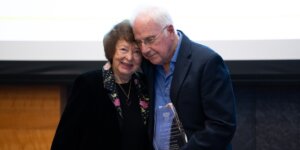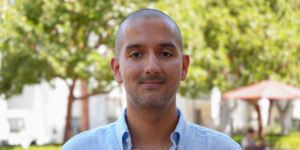
Innovation-Node Los Angeles (IN-LA) is a collaboration of the University of Southern California (USC), California Institute of Technology (Caltech), and University of California, Los Angeles (UCLA). Photo/iStock
USC’s stake in SCilicon Beach just got deeper. Funding for Innovation-Node Los Angeles (IN-LA), has been renewed for another five years of operation with USC as the anchor institution of the National Science Foundation’s (NSF) Innovation Corps (“I-Corps”) entrepreneurship activities in Southern California.
Through the NSF I-Corps program, USC has cultivated new technologies for commercialization, trained students and faculty, and opened access to capital. It has made entrepreneurship and innovation key components of an engineering curriculum.
USC Viterbi Dean Yannis C. Yortsos links the success of the innovation node to the past successes of its teams:
“USC Viterbi helped raise grants and private investment totaling roughly $60 million for approximately 30 teams connected to all the Node schools, including nearly $15 million to USC-affiliated teams,” he said.
NSF I-Corps is led by eight regional hubs, or Nodes, that are scattered throughout the nation. With USC as the lead institution, IN-LA’s partners are Caltech and UCLA; the Node has expanded to fourteen universities and organizations throughout the western United States, creating a broader ecosystem where students, faculty and staff from different universities collaborate. IN-LA is led by Andrea Belz, USC Viterbi vice dean for technology innovation and entrepreneurship.
“Southern California is the second largest economy in the country and a booming startup ecosystem. I-Corps gives us an important tool to recruit and support teams with transformative technologies.”
Andrea Belz
Belz specializes in modeling technology entrepreneurial ecosystems and developing processes for strategic technology management. She adapted the I-Corps program to create abbreviated training used throughout the western United States, known as ZAP! and BOOM.
“Southern California is the second largest economy in the country and a booming startup ecosystem. I-Corps gives us an important tool to recruit and support teams with transformative technologies,” said Belz.
ZAP! is a one-week introductory program for students seeking insight into technology opportunities in many different industries. Participants must conduct five customer discovery interviews to learn about industry structure, gaining real-world experience applicable to startups and jobs in companies of any size.
Teams with deep technologies can advance to BOOM, requiring ten interviews in the course of one week. Successful teams may be allowed to apply for up to $50,000 from the NSF to learn about and execute deep customer discovery.
But not only students benefit from I-Corps.
“I-Corps is a program that takes academic research and helps it on a path to commercialization,” said Alice Liu, assistant director of IN-LA’s office of technology and entrepreneurship. “I-Corps teaches academics about entrepreneurship and business concepts so they can take their technologies into the real world.”
The NSF I-Corps programs offers unique opportunities to integrate business model training and technology development planning. These skills give students and faculty create competitive advantage in a crowded marketplace.
“We think of ourselves as a start-up,” said Liu. “Like our I-Corps teams, we are in a growth phase and constantly looking at ways to improve.”
This constant re-invention drives the people behind the Node, and it’s the mindset of the entrepreneur who goes from student or teacher to business owner. Liu points to 300+ teams who have participated in I-Corps.
Trojan-founded companies such as Bezalel and Stasis Labs, under the mentorship of Ashish Soni, founding director of the Viterbi Startup Garage, are just two recent start-ups to benefit from USC’s ecosystem that merges engineering and entrepreneurship. Bezalel has received $2 million in funding for designing and manufacturing wireless charging technologies.
Stasis Labs, which makes mobile health monitoring units using the power of the cloud, has raised $5 million in seed capital.
The relationship does not end at seed money, however, Liu said. The I-Corps Node continues to mentor the companies with supplementary programs once they’ve joined the booming world of start-ups.
Published on November 7th, 2017
Last updated on April 7th, 2025












